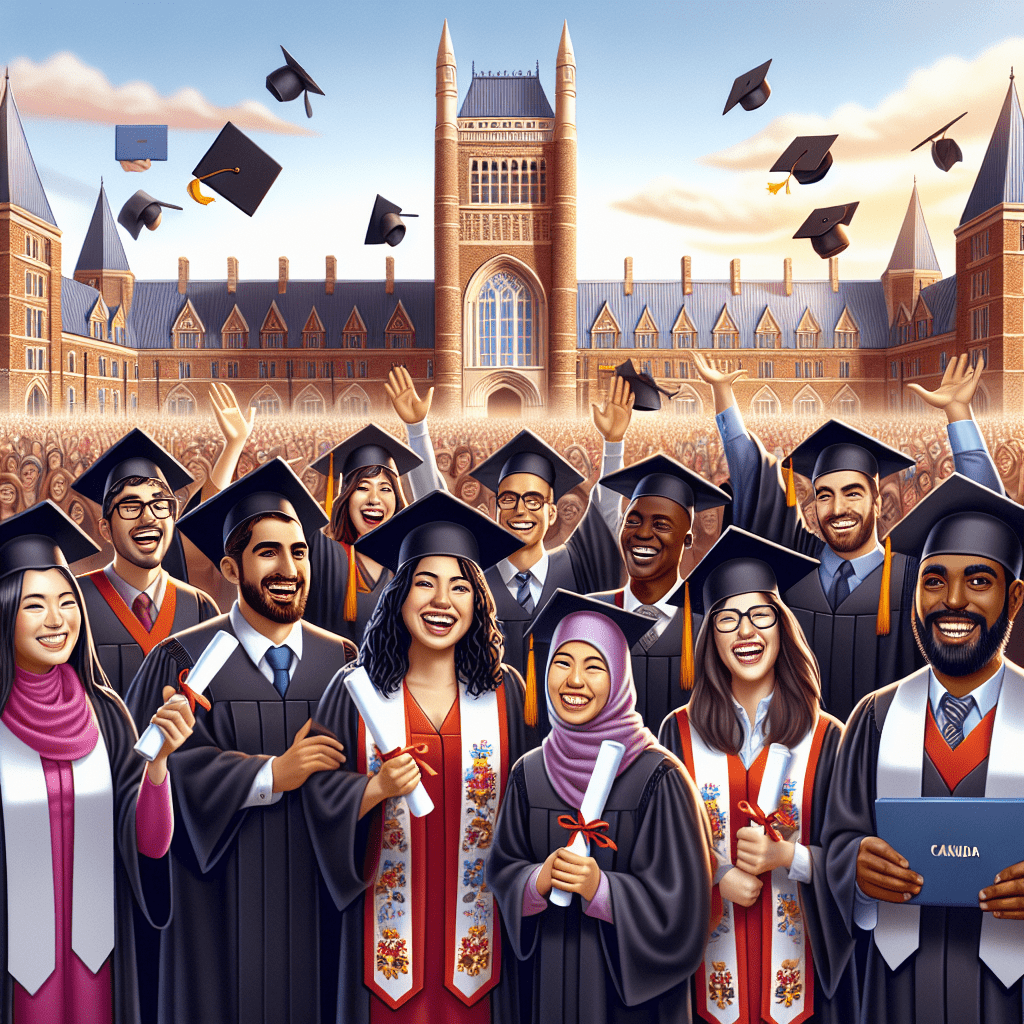International Students Outearn Canadian Grads at Top University

International Graduates Outperform Canadian Counterparts: Insights from the University of Waterloo Study
A recent study conducted by economists at the University of Waterloo reveals a striking trend: international graduates from the university earn significantly more than their Canadian-born peers. This finding not only highlights the economic potential of international students but also sheds light on the broader implications for Canada’s labor market and immigration policies.
Key Findings from the Study
The research analyzed student records, immigration data, and income tax returns to draw its conclusions. Graduates from the 2017-2019 cohort who were international students earned an average of $57,500 within a year of graduation, a substantial 37% higher than the $42,000 earned by their Canadian-born counterparts. The median earnings also reflected this disparity, with international students earning $56,400 compared to $38,700 for Canadian graduates—a remarkable 46% difference.
This trend persists over time: after 13 years in the workforce, international graduates’ average salaries range between $100,000 and $120,000, while Canadian-born graduates hover around the $100,000 mark. Such figures suggest that international students are not only thriving immediately after graduation but are also poised for long-term success in the Canadian economy.
Why the Discrepancy?
The study’s authors attribute these higher earnings to the growing economic value of degrees in technology and engineering—fields where international students at Waterloo are predominantly concentrated. The University of Waterloo is renowned for its robust co-op program, which provides students with valuable hands-on experience and connections in their industries. This emphasis on practical experience, coupled with a strong academic foundation, likely equips international graduates with skills that are highly sought after in the job market.
Broader Implications for Immigration and Education Policy
These findings align with broader research indicating that immigrants in Canada typically achieve better educational and economic outcomes. A Statistics Canada study earlier this year reinforced this notion, showing that children of newcomers are more likely to pursue higher education and, after age 25, often match or exceed the median wages of their Canadian-born counterparts.
Moreover, the University of Waterloo reports that approximately 70% of its international students transition to permanent residency, significantly exceeding the national average. This trend underscores the importance of international students to Canada’s labor market and suggests that their contributions are vital to the country’s economic growth.
A New Perspective on International Education
As Canada continues to position itself as a global leader in education, the success of international students at institutions like the University of Waterloo serves as a compelling case for enhancing support for these individuals. Beyond the immediate economic benefits, the integration of international graduates into the workforce contributes to a more diverse and innovative labor market.
This study prompts a reevaluation of how Canada approaches its education and immigration policies. By recognizing the potential of international students as valuable contributors to the economy, policymakers can create more inclusive frameworks that not only attract talent but also ensure that these individuals have the resources they need to succeed.
As we look to the future, fostering an environment that supports international graduates could yield significant returns for Canada, not just in terms of economic performance but also in building a vibrant, multicultural society that thrives on diversity and innovation.



